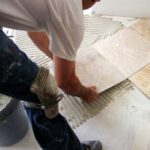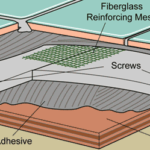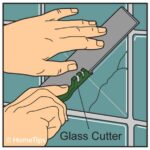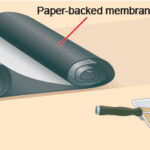An unbiased and expert buying guide about tile and stone flooring adhesives, with information about latex, epoxy, thinset cement, polyurethane, and more.
When it comes to installing tile or stone flooring, choosing the right adhesive is crucial for a successful installation. Adhesives are what hold the tiles or stones in place and ensure that they don’t shift or become loose over time. Several adhesive options are available, each with its own characteristics that determine whether or not it’s suited for a particular type of flooring and base (“substrate”).
Choosing the best adhesive for your specific flooring material and installation conditions can be a challenge. Of course, you can do your own research—and that’s what this article is for—but it’s always a good idea to consult with a professional flooring installer before you make a final decision.
In this article, we will discuss the most common types of adhesives for tile and stone flooring installation and provide some guidance to help you make an informed decision. Here is a closer look at each of the main tile and stone floor adhesives:
Thinset Mortar
Thinset mortar is a very popular choice for installing a variety of tile and stone types, including porcelain and ceramic tiles, as well as natural stone like marble and granite. It is a cement-based adhesive, composed of cement, sand, and other additives.
Cement-based adhesives provide a high strength bond and are suitable for both interior and exterior applications. They are available in different formulations for specific purposes, such as flexible adhesives for areas prone to movement or moisture-resistant adhesives for wet areas. It can be applied to concrete, cement backer board, gypsum underlayment, and plywood substrates.
When buying a cement-based adhesive, look for latex-modified thinset mortar. This type of mortar is a blend of Portland cement, sand, and a latex polymer additive that improves adhesion, flexibility, and durability (without the latex, thinset can crack easily.) Latex-modified thinset mortar, usually sold as a dry powder that’s mixed with water or a liquid additive, is typically used for interior installations. You mix it in small batches on the job and must use it within about half an hour.
One advantage of using latex-modified thinset mortar is that it can be used with large, heavy tiles and stones that require a strong bond.
Latex-modified thinset mortar typically costs from $0.20 to $0.50 per square foot, depending on the brand and location.
Overall, latex-modified thinset mortar is a versatile and reliable adhesive option for tile and stone flooring installations, and it is worth considering for your next project.
Epoxy Adhesives
Epoxy adhesive is known for its strength, durability, and resistance to water and chemicals. It is often used in high-traffic areas and areas or where there are high levels of moisture, such as bathrooms and kitchens.
Epoxy adhesive is on the expensive side—typically costing $0.40 to $0.80 per square foot.
Epoxy adhesive can be difficult to apply because it sets quickly, leaving little time for error or adjustments once it’s applied. It is typically a two-part system that requires precise mixing of the resin and hardener before application. If the mixing ratio is incorrect, it can result in a weaker bond or an adhesive that does not set properly. Additionally, epoxy adhesive can have a thick and viscous consistency, which can make it challenging to spread evenly on the surface.
Polyurethane Adhesives
Polyurethane adhesives can be used for adhering both tile and stone to floors. They offer good bond strength and flexibility, but it’s important to note that there are some limitations. For example, some polyurethane adhesives may require the use of primers or surface preparation to ensure proper bonding to the concrete or plywood substrate. In addition, the porosity of the stone can be a factor. Certain types of stone, particularly more porous varieties, may absorb the moisture from the polyurethane adhesive, leading to prolonged curing times or potential discoloration. Try it out on a small test area or consult with the stone dealer to determine if the particular stone material is suitable for use with polyurethane adhesives.
Polyurethane adhesives may be sensitive to moisture during the curing process. Ensure that the installation area is dry and that moisture sources, such as water leaks or excessive humidity, are addressed before applying the adhesive. Also, once a polyurethane adhesive is applied, there may be a limited time window for tile or stone installation before the adhesive starts to set. Follow the manufacturer’s instructions for proper application, including the open time and curing time guidelines.
Polyurethane adhesives are typically considered more expensive than other adhesives. The cost can vary widely depending on the specific product and brand, but they generally fall within the range of $10 to $30 per gallon (3.8 to 4.5 liters). The coverage of a gallon of adhesive can range from 100 to 200 square feet
Acrylic Adhesives
Acrylic adhesives can be used for adhering tile and stone to floors in certain applications but they don’t form as strong a bond or offer some of the same performance as other adhesives. They are generally more suitable for ceramic and porcelain tiles rather than natural stone with porous surfaces that may require a stronger adhesive with better bonding capabilities. Because acrylic adhesives are water-based, they may not have the same level of moisture resistance as other adhesive types, such as epoxy or polyurethane—so they’re not the best choice for wet environments.
On average, acrylic adhesives can range from $5 to $15 per gallon (3.8 to 4.5 liters). The coverage of a gallon of acrylic adhesive can range from 100 to 200 square feet.
Organic and Mastic Adhesives
Organic adhesives, sometimes referred to as mastics, are based on natural or synthetic polymers. They are typically pre-mixed and ready-to-use adhesives that come in paste or gel form. Organic adhesives provide good adhesion and are commonly used for tile installations, particularly with ceramic tiles. However, they may not be recommended for areas with high moisture or wet conditions, and they don’t provide the same level of strength and durability as other adhesives.
Mastic adhesives are a type of organic adhesive that is often used for tile installations. They are easy to work with and come in a ready-to-use form. Mastic adhesives are commonly used for wall tile applications or light-duty flooring projects. Mastic adhesives are budget-friendly and easy to apply. However, it is not recommended for high-moisture areas or outdoor use, and it may not
Natural organic adhesive is an eco-friendly alternative to traditional adhesives—it’s made from natural materials, such as plant-based resins. It is often used for smaller tile and stone projects and is a good option for those who are concerned about the environmental impact of their project.
Mastic adhesive typically costs $0.10 to $0.25 per square foot. Natural organic adhesive typically costs $0.50 to $1.50 per square foot.
In Summary
Understanding the different types of adhesives available can help you make an informed decision when it comes to choosing the right adhesive for your tile or stone flooring project.
To get the best adhesive for your tile of choice and substrate, consult your tile dealer. For installing ceramic or stone floor tile, latex-reinforced thinset mortar is usually the best choice.



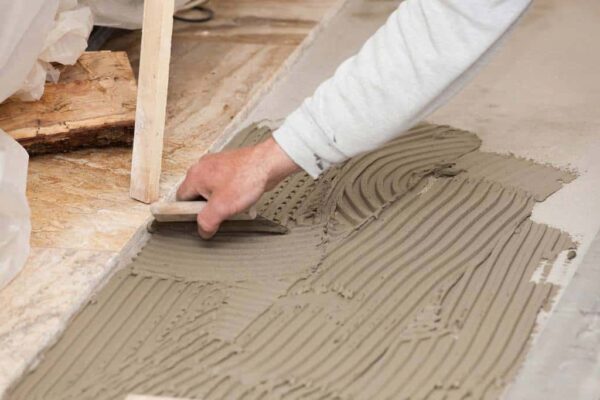
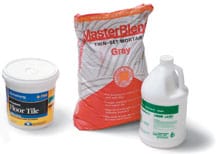
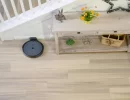

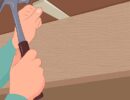

 Don Vandervort writes or edits every article at HomeTips. Don has:
Don Vandervort writes or edits every article at HomeTips. Don has:
